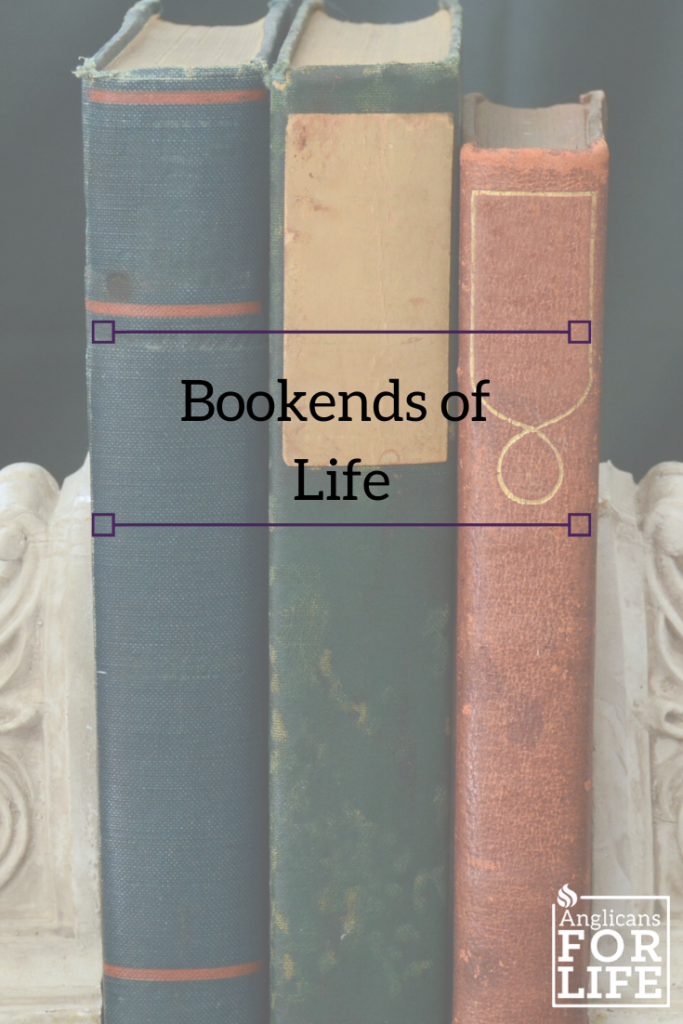
Editor’s Note: This is an excerpt of the sermon given by Bishop Charles Masters at the AFL Prayer & Worship Service that took place at The Falls Church Anglican on Friday, January 24th, prior to the March for Life in Washington, DC. You can watch the recording of his sermon on our YouTube channel.
May the words of my lips and the meditations of all our hearts be acceptable in thy sight, O Lord, our strength and our Redeemer. Amen.
Dear friends, it is a great privilege and joy always to be invited to open the Word of God, but today at the beginning of this March for Life day and this March for Life service, for me as a Canadian, to be invited to address this service, it’s a particular delight and honor.
I believe that the March for Life is a powerful witness to the heart of God, as revealed in the Scriptures. I believe that it helps us to give testimony to the fact that God loves Life, and He’s made life available to all in Jesus. And in Jesus alone there is life. We also find, as Paul said in 2 Corinthians 5, that we’re propelled into a life of ministry, whereby we are ambassadors for God and agents for Life.
We have two passages that we’re looking at, which I suggest to you are bookends of Life in the Scriptures: Deuteronomy 30 and John 10. Deuteronomy 30 is the end of what was a very lengthy sermon that Moses had given. This was the conclusion of his life, almost literally, probably days from when he would make his way up the mountain. But he’s now addressing a new generation. He’s doing so as a firsthand witness to the purposes of God and the hand of God at work. He reminds them as a good lawyer, systematically going through step-by-step all that God has done, reminding them particularly about what happened there 38 years previous.
Rather than trusting that God was faithful and deciding to walk with Him, they fell back. So, God made an oath, which was that no one of that generation would go into the Promised Land, all except Caleb and Joshua. Not even Moses got to go in. We’re now paused with Moses, as he’s giving them a kind of pep talk, and Deuteronomy 30 is his closing argument. He’s made it clear that if you walk with God, if you make God your God, then there’s blessings and life for you. But if you choose to say no to God, there is certainly curse and death.
He says, “For this commandment that I commanded you today. It’s not too hard for you. Neither is it far off. It’s not in heaven that you should say, ‘Who will ascend to heaven for us and bring it to us that we may hear it and do it.’” He continues in verse 15, “See, I’ve set before you today life and good, death and evil.” And then he says in verse 19, “I call heaven and earth to witness against you today, that I’ve set before you life and death, blessing and curse.” And here it is. With a lump in his throat, crying out, begging—he says, “Therefore, choose life that you and your offspring may live, loving the Lord your God and obeying His voice, holding fast to Him, for He is your life and length of days, that you may dwell in the land that the Lord swore to your fathers, to Abraham, to Isaac, and to Jacob, to give them.” Moses had more than a lingering fear. While it seems so obvious—what fool would choose curse and death over blessings and life? And yet he knew all too well that generations would do so. And throughout the old Testament, we discover that though there is a faithful remnant throughout, a Simeon-like people who are waiting for the consolation of Israel, there is that throng of those who say “no” to God and therefore choose death and curse.
So it is, thinking of the bookend, that the appeal of Moses necessarily had to look back to an earlier part of this sermon in Deuteronomy 18:15. He said, “The Lord your God will raise up for you a prophet like me“—this is Moses speaking— “from among you and your brothers. It is to him, you shall listen.” And so, to the delight of all who look to God in the fullness of time, this very Son of God was born of a Virgin, laid in a manger, and raised with the name Jesus. And so He became the light of the world, light to the nations, bread of heaven. That takes us to our next bookend, where we find Jesus describing Himself as the good shepherd, and He makes an interesting statement. He says this, “The thief comes only to steal and kill and destroy. I’ve came that they might have life and have it abundantly.” He goes on to say, “I am the good shepherd. The good shepherd lays down his life for the sheep.” Later He says, “I have other sheep that are not of this fold, I must bring them also, and they will listen to my voice, so there will be one flock and one shepherd. For this reason, the father loves me because I lay down my life.” Jesus was thinking of Ezekiel 34, in which God fired the leaders of Israel, because they were unfaithful and thought this was all about them. He said, “Thus says the Lord God, Behold, I’m against the shepherds, and I will require my sheep at their hand and put a stop to their feeding the sheep. No longer shall the shepherds feed themselves. I will rescue my sheep from their mouths, that they may not be food for them. For thus says the Lord God: Behold, I myself will search for my sheep and will seek them out.” And so it is that Jesus says, the thief not only runs, but the thief actually has a mandate and a purpose, which is only to steal, kill, and destroy.
But Jesus says, I’ve made my choice. He said, I’ve chosen life, life in all its fullness, and we know what that means for Him. That means life, not just for Him alone, but for the many who have run by faith to Him. It’s an acknowledgement of the fact that death is a horrible enemy that Jesus himself must deal with. And He makes it clear that it’s His desire that none should perish, but that all should come to life in Him.
Jesus not only has made His choice for life, but He’s also made provision for life for all. Isaiah 53—that great passage written hundreds of years before Jesus’s earthly pilgrimage—says, “Surely he has borne our griefs and carried our sorrows. Yet we esteemed him stricken and smitten by God and afflicted, but he was wounded for our transgressions. He was crushed for our iniquities. Upon him was the chastisement that brought us peace. And with his stripes we are healed. All we like sheep have gone astray. We have turned everyone to his own way and the Lord has laid on him the iniquity of us all.” This Jesus has made provision for life for all. And in verse 11, “Out of the anguish of his soul, he shall see and be satisfied; by his knowledge shall the righteous one, my servant, make many to be accounted righteous, and he shall bear their iniquities.” Jesus chose life. He made provision for life, and there’s life only in Him. Let me just quote that famous verse of scripture, John 14:6, in which Jesus said, “I am the way, the truth, and the life. No one comes to the father except through me.” He chose life, He made provision for life, and He’s the only way to life. So, if you choose life, you must choose Jesus.
But what is quite amazing to me is that in 2 Corinthians 5 Paul makes it clear that, when you run by faith to this Jesus, everything changes. Listen to this, “Therefore, if anyone is in Christ, he’s a new creation. The old has passed away. Behold, the new has come from certain death and curse to all the blessings in the heavenly places are yours now in Christ. All this is from God, who through Christ reconciled us to himself and gave us”—gave us—“the ministry of reconciliation that is in Christ. God was reconciling the world to himself, not counting their trespasses against them and entrusting the message of reconciliation. Therefore, we are ambassadors for Christ, God making his appeal through us. We implore you on behalf of Christ, be reconciled to God for our sake. He made him to be sin who knew no sin, so that in him we might become the righteousness of God.” Extraordinary, incredible mercy and grace—the one who passionately loves life, the one who is the author of life, the one who doesn’t want any to know death. The only way for life is through one who takes the likes of you and me and makes us ambassadors for Him and for life.
Dear friends, let us pray today that this March for Life would be a powerful witness to God’s heart for life, for the sanctity of life, to the nation, to the world. Let us pray that God’s fear and horror of death would be understood. There’s no friend in death. Let us pray that it would be clear that Jesus alone has made provision for life, and let’s pray that an appeal would go out, even as the March goes on, to people and to the nations saying, come, choose life. Choose Jesus. And to those who know Christ, let us pray the appeal would go out to them. Friend, be an agent for life, because God loves life.
Let us pray: Almighty God, whose Son our Savior, Jesus Christ, is the light of the world, grant that Your people, illumined by Your word and sacraments, may shine with the radiance of Christ’s Glory, that He may be known, worshiped, and obeyed to the ends of the earth through Jesus Christ, our Lord, who with You and the Holy Spirit lives and reigns, one God now and forever. Amen.
Bp. Masters is Diocesan Bishop of the Anglican Network in Canada. This sermon originally featured in the February 2020 edition of the Carpe Diem newsletter.



